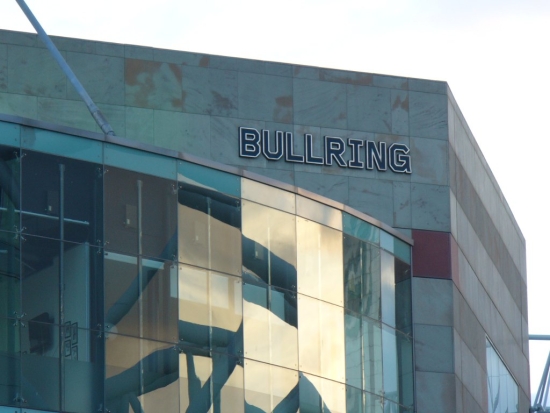Ten years ago, the retail environment in the UK was much different to the situation of today. Internet shopping was not the overwhelming force it is now and high streets remained popular with consumers, leading to a surge in large-scale retail developments – with Birmingham’s Bullring Shopping Centre being a prime example of this retail boom.

This month, the Bullring celebrates its 10th anniversary and is putting on a programme of events designed to entertain shoppers and showcase the best of what the popular mall has to offer. A series of catwalk shows will be held on the 28th September and will be hosted by fashion icon Mollie King from The Saturdays.
However, this event could be just the tip of the iceberg in terms of entertainment as general manager, Tim Walley, intends to increase the amount the Bullring has to offer by expanding into the leisure industry to cater to the demands of today’s consumers.
Mr Walley hopes to install a bowling alley, a cinema or even a casino to broaden the Bullring’s appeal and tap into an evening market.
He says; “We believe customers see shopping as just part of the experience at Bullring.
“They also want to treat themselves to a meal and enjoy leisure opportunities, such as the cinema, bowling or going to a casino.
“That’s where we see an extra increase of Bullring, on the leisure side so the whole shopping day becomes fulfilled.”
Since the Bullring opened in 2003, it has managed to attract upwards of 400 million visitors to Birmingham, making it a key player in the city’s economy. On average, 175,000 shoppers walk through its doors every week – equating to a staggering footfall of 9.1 million visitors every year.
However, large shopping complexes of its type face significant criticism from those attempting to halt the downward spiral of the high street. According to some industry experts, the Bullring discourages consumers from visiting retailers who cannot afford to rent units within the development and thus plays a role in the struggle faced by small businesses and start-ups in the present economic situation.
Mr Walley refutes this claim, believing that the Bullring attracts shoppers to the wider area as well as to the complex itself.
He continues; “A lot of brands cannot afford to be in Bullring so the opportunity still exists for other brands to take space on the periphery.
“We know our customers shop outside of Bullring when they come.
“We hope in the next couple of months to make some positive announcements on the retail mix as some worldwide brands that have never been in Birmingham before are planning to move in.”
With consumers increasingly recognising the plight of the high street and choosing to support local retailers instead of international brands, there are some who may question the future success of the Bullring. However, with a high sales turnover and steadily climbing annual footfall, it is possible that the next 10 years will prove even more profitable for the retail giant.
Do you think large shopping centres such as the Bullring should offer local retailers the chance to take units at reduced rents?